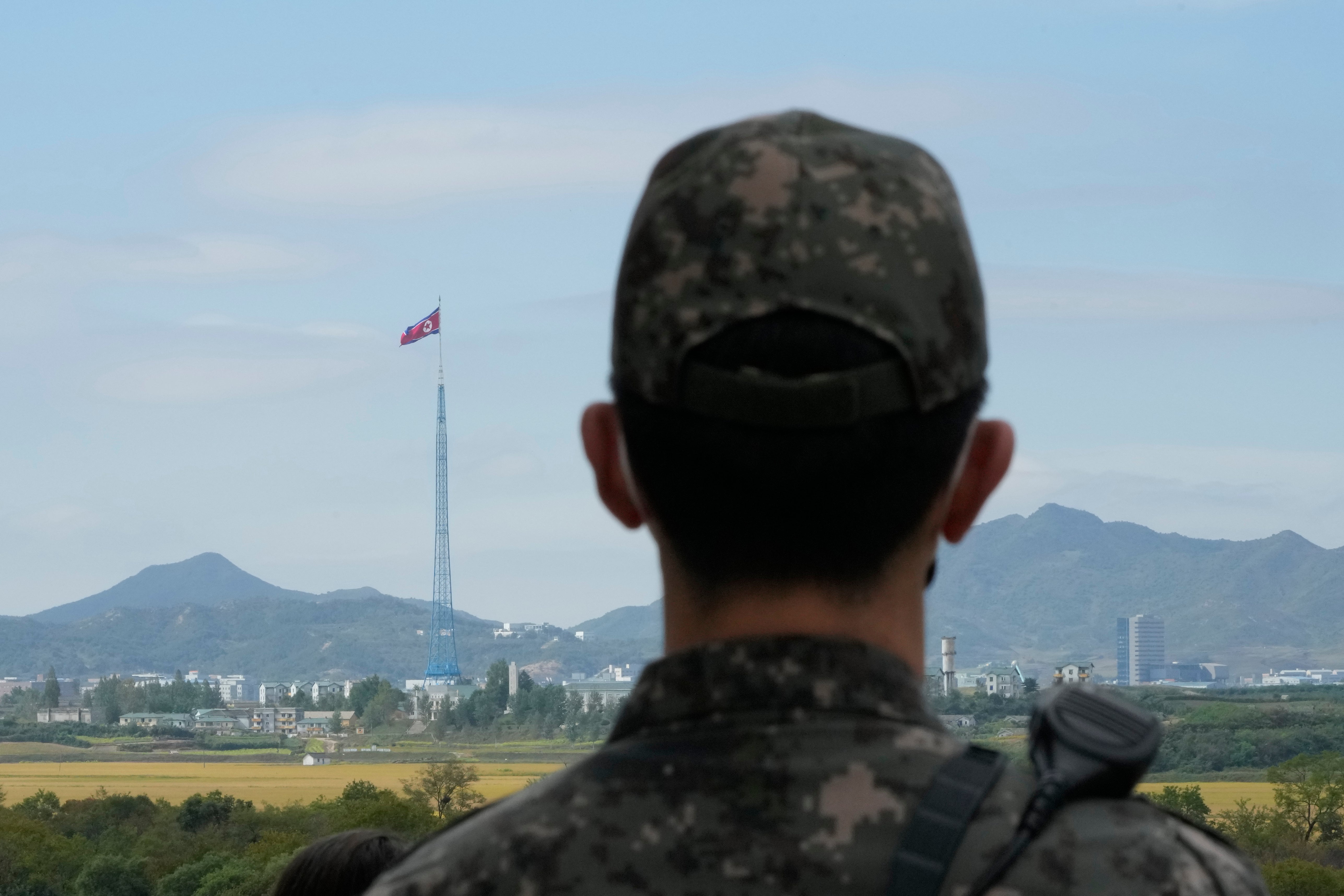UN Security Council splits, again, over North Korea missiles
Debate over how to handle a North Korean ballistic missile launch over Japanese territory has again split an already deeply fractured U.N. Security Council

Debate over how to handle a North Korean ballistic missile launch over Japanese territory split an already deeply fractured U.N. Security Council on Wednesday, with Russia and China insisting that U.S.-led military exercises in the region had provoked North Korea into acting.
Wednesday’s session ended with no agreement on next steps, despite warnings from the U.S. and its allies that the council’s inability to reach consensus on North Korea’s record number of missile launches this year was emboldening North Korea and undermining the authority of the United Nations' most powerful body.
”This council should be mindful that it is being tested and its credibility is at stake. This council should act, and produce an action that restores its credibility,” said Hiroshi Minami, Japan's deputy representative to the U.N. and one of those unsuccessfully urging the council back into its formerly unified stand over North Korea’s launches.
North Korea’s missile flight Tuesday was its longest-range weapons test ever, a nuclear-capable ballistic missile that soared over Japan and had enough punch to reach the U.S. Pacific territory of Guam and beyond. It forced the Japanese government to issue evacuation alerts and halt trains.
The U.N. said it was one of North Korea’s unprecedented 39 ballistic missile launches so far this year, including the eight most recent ones in a single 10-day period. It comes as North Korea also appears to be moving toward a seventh test nuclear blast, the U.N. says.
Within hours of the council meeting, South Korea announced a new North Korean missile launch, bringing the year's total to 40.
North Korean leader Kim Jong Un is pushing to develop a fully fledged nuclear arsenal capable of threatening the U.S. mainland and the territory of U.S. allies, with a goal of wresting concessions from those countries, some experts say.
Tuesday's launch was the first that Kim has aimed over Japan since 2017. It came within days of a U.S.-led military exercise in the Sea of Japan with allies Japan and South Korea. The exercise included a nuclear-powered U.S. aircraft carrier.
Russia’s deputy U.N. representative, Anna Evstigneeva, insisted to Security Council members that it was the “irresponsibility” of that U.S.-led exercise, along with growing U.S. alliances with partners in the Asia-Pacific region, that prompted North Korea’s action.
China’s deputy U.N. representative, Geng Shuang, depicted the matter as a confrontation between the U.S. and North Korea, and urged a more conciliatory approach by Washington.
Wednesday’s session ended only with a vague call for more discussion on the matter. It served as the latest example of a growing polarization pitting Russia and China against fellow permanent Security Council members the United States, United Kingdom and France.
Brought to the forefront by Russia’s invasion of Ukraine, China’s military assertiveness in the Asia-Pacific region and the U.S. response to it, and other matters, the divide has paralyzed the Security Council on many key actions. That’s because all five permanent members have the power to veto council actions.
The Security Council imposed sanctions after North Korea’s first nuclear test explosion in 2006, and tightened them over the years seeking to rein in its nuclear and ballistic missile programs and cut off funding.
In May, however, China and Russia blocked a Security Council resolution that would have toughened sanctions over the missile launches, in the first serious rift on the council over the sanctions against North Korea.
Linda Thomas-Greenfield, the U.S. ambassador to the U.N., told Security Council members Wednesday that “two permanent members of the Security Council have enabled Kim Jong Un.”
Past missile launches this year had clearly been launched without any concurrent U.S. military exercises or any other clear triggers, Thomas-Greenfield said, calling North Korea's a “self-initiated escalation.”
“We won’t tolerate any country blaming our defensive actions…as somehow the inherent cause of these threats,” she said. She added, “The United States will not stand by as the DPRK directly threatens” the U.S. or its allies.
Bookmark popover
Removed from bookmarks